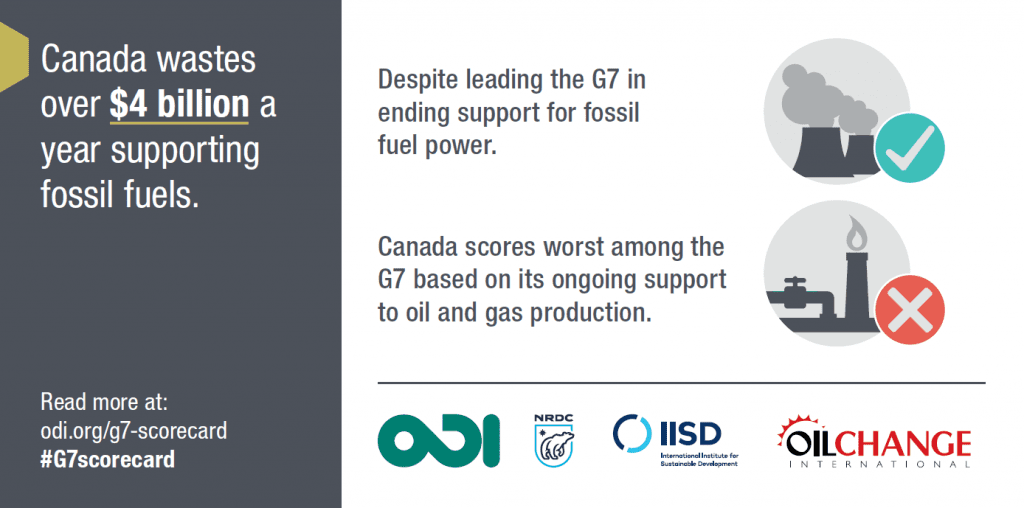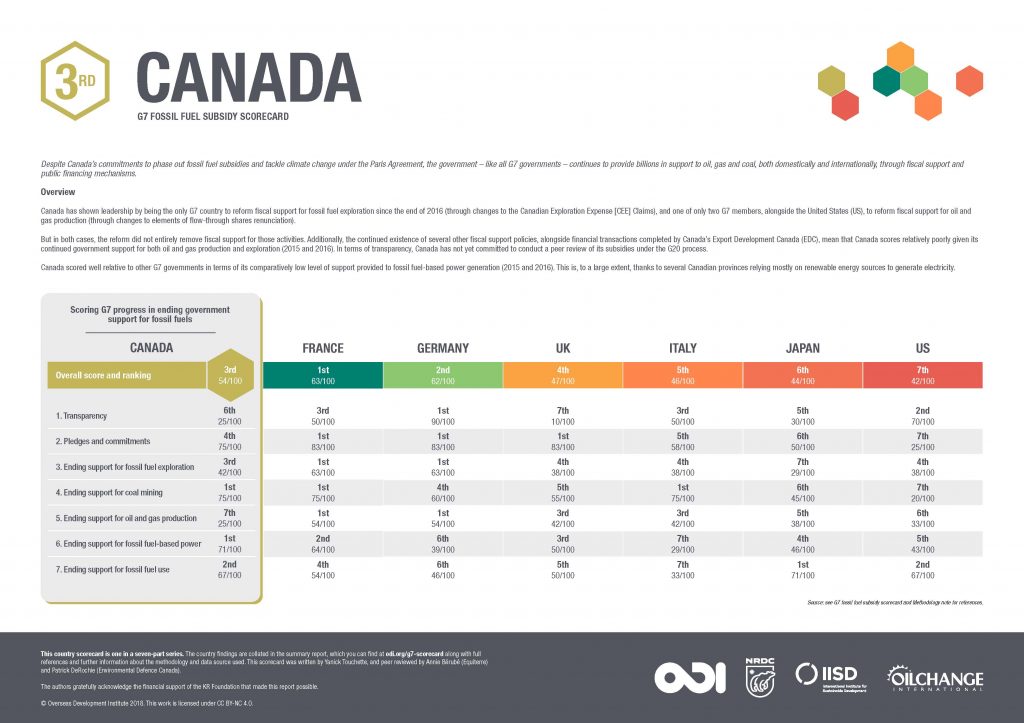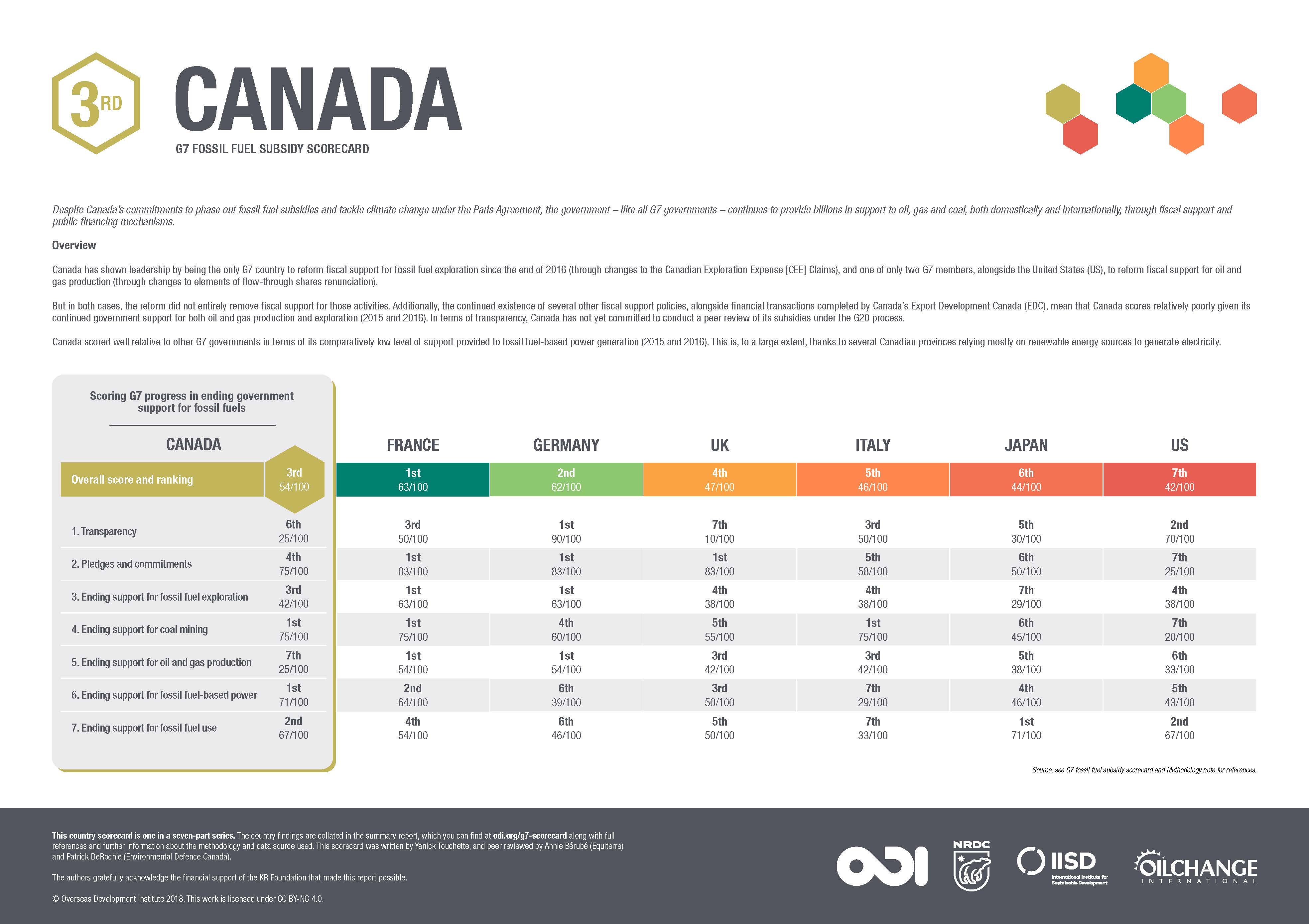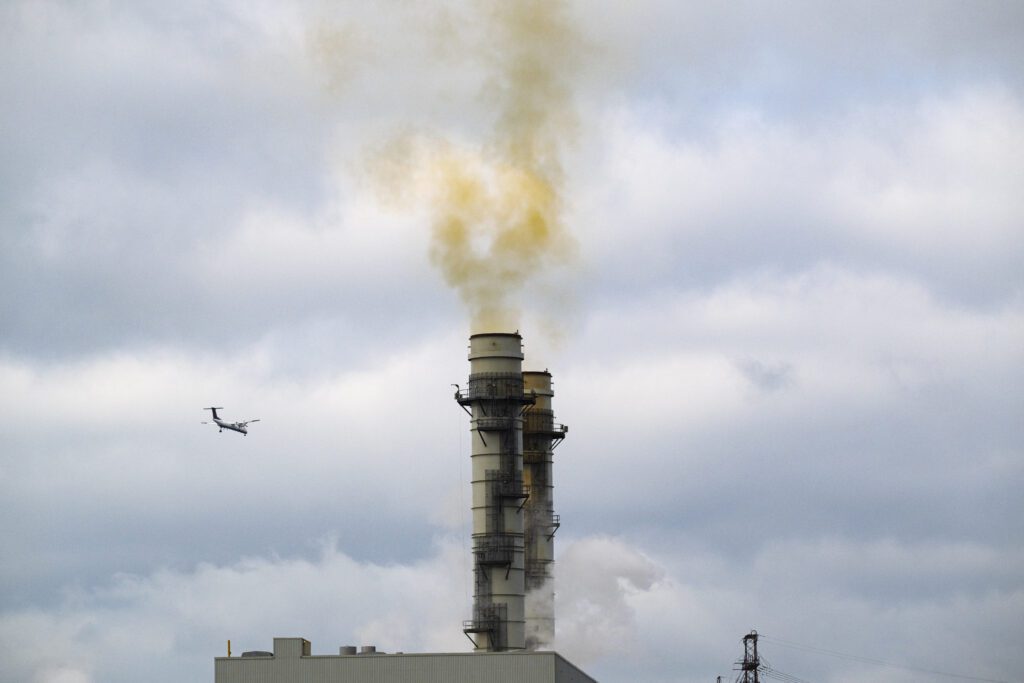Canada continues to provide substantial public support for the oil and gas industry and isn’t moving fast enough on its promise to phase out fossil fuel subsidies.
That’s why Canada received a grade of 54 per cent in a report released this week that ranks the progress that the G7 group of developed economies have made toward eliminating public handouts to climate polluters. (And this assessment was written before the federal government decided to buy a leaky 65-year old tar sands pipeline.)
Take action: Tell the federal government to stop giving public money to oil and gas companies.

Every year, the Overseas Development Institute (ODI), a leading international think tank, releases a scorecard of how the world’s largest developed economies are faring on their commitment to phase out fossil fuel subsidies. ODI teamed up with some of our allies, including Natural Resources Defense Council, International Institute of Sustainable Development and Oil Change International, to rank G7 countries. I helped to draft and edit Canada’s scorecard.
Although Canada outperformed its G7 peers in some categories, the results aren’t pretty.
On the positive side:
- Canada showed leadership by being the only G7 country to stop generating fossil fuel powered electricity that is subsidized by government. This is largely because of Canada’s low-carbon electricity grid and complete halt to public finance for fossil fuel electricity in 2016.
- Canada ranked first for the relatively small amount of fiscal support it provides for coal mining.
- Although many provinces substantially support oil and gas consumption—through policies and tax provisions that make activities like driving, flying, space heating and carbon-intensive industrial processes cheaper—Canada still ranked higher than its G7 peers on ending support for fossil fuel use.
On the negative side:
- Canada ranked second last on transparency. Canada does not publish specific reports on fiscal support for fossil fuels and has not defined what it considers to be an “inefficient” subsidy. Last year the federal government stonewalled Canada’s Auditor General when he attempted to audit Canada’s progress in reforming fossil fuel subsidies.
- Canada ranked dead last on ending support for oil and gas extraction. Canada continues to support oil and gas production at home and abroad, even though the oil and gas industry is the largest and fastest growing source of climate pollution in the country.
- Canada is the largest provider of government support for oil and gas production per unit of GDP in the G7.
***Special mention: The ODI report was written before last week’s announcement that the federal government would buy Kinder Morgan’s Trans Mountain tar sands pipeline and pay for its expansion project. The pipeline bailout will cost at least $4.5 billion, with some economists estimating the cost to rise as high as $20 billion. If the study included the enormous public cost of bailing out Kinder Morgan, Canada’s ranking would likely drop.

Canada, like its G7 peers, continues to provide billions of dollars in support to fossil fuel companies. These subsidies undermine carbon pricing, work against the achievement of Canada’s climate targets, encourage more fossil fuel exploration and production, and allocate scarce public dollars away from other priorities like health care, education and renewable energy. Fossil fuel subsidies are also deeply unpopular with the Canadian public, as our recent Ekos polling report demonstrates.
Canada and its G7 partners have committed to phase out public subsidies by 2025. But the federal government is not moving fast enough, and now it’s moving backwards by bailing out the risky Kinder Morgan tar sands pipeline.
Enough is enough. Tell the federal government to get rid of fossil fuel subsidies.








